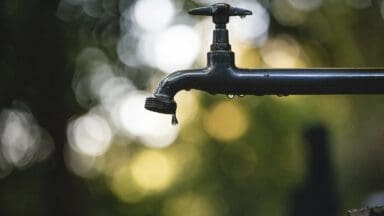
UK garden centres and ornamental growers use around 20 million cubic metres of water a year, which is equivalent to just 0.2% of the UK’s total water use. However, messaging around hosepipe bans, can have a direct, adverse effect on the sector.
Stuart Tickner, Site Operations Manager at Provender Nurseries, said: “It is hugely important that the government, local authorities, and the water industry get the messaging on water restrictions right. In May, we were told that a ‘hosepipe ban’ might be introduced in our area. The mere threat of this cost our business £300,000 because of cancelled orders. A hosepipe ban isn’t an accurate description, but it has a massively negative impact on our sector and it feels very targeted towards horticulture. Changing the terminology is a simple, practical ask, but it would make a huge difference.”
According to the Horticultural Trades Association (HTA), 50% of UK ornamental plant growers use rainwater capture systems, and 32% do not, but would like to. 41% of growers use reservoirs to store water, minimising reliance on mains during times of shortage. 58% of garden centres use automated watering systems for at least some of their watering, increasing efficiency and reducing workload for staff. 74% of the water a garden centre uses is for watering plants, 8% on customer toilets, and 13% on the café/restaurant. The rest is used for other purposes.
Working with government, the HTA has stepped up its campaign to ensure that water-related issues faced by its members are recognised and addressed. Fran Barnes, the HTA’s Chief Executive attended this week’s National Drought Group and has written to the Environment Secretary and the Minister, urging for the delivery of a long-term water resilience strategy.
“I have written to the Environment Secretary, Rt Hon Steve Reed MP, urging him to act on creating a plan for water resilience that supports our members in creating their own water resilience strategies, making it easier for them to invest in reservoirs or new water-saving technologies. We can no longer go from flood to drought. Water resilience is an essential part of UK infrastructure.
Barnes explained: “No member I’ve spoken to takes water for granted. Yet businesses within the environmental horticulture sector operate within a system that offers little support and presents many barriers to water resilience. Growers that want to invest in their own water storage face complex planning hurdles and many are forced to rely on expensive, treated mains water simply to keep their crops alive. Each summer, misleading ‘hosepipe ban’ headlines target our sector, confuse customers, dampen plant sales, and damage confidence, just when trade should be thriving.
“Environmental Horticulture is vitally important to the UK’s climate change mitigation plans, improving biodiversity, helping with urban cooling and flood management, but a lack of water resilience and headlines of ‘hosepipe bans’ rather than wider messages about responsible water use are a missed opportunity that undermines our sector.
“We need strategic change. I have made a clear call to government for a new focus, debate and action on water resilience, unlocking the barriers to water storage and ensuring horticulture experts can be part of a constructive way forward for the UK’s water sector.”
National Drought Group
The National Drought Group, consisting of the Met Office, government, regulators, water companies, the National Farmers’ Union, Canal & River Trust, anglers, and conservation experts meet to highlight the water-saving measures each sector is taking. The most recent meeting took place on the 11th of August, with the current water shortfall situation in England now defined as a “nationally significant incident.”
Five areas are officially in drought, with six more experiencing prolonged dry weather following the driest six months to July since 1976. Despite the unsettled weather last month, many river flows and reservoir levels in England continued to recede compared to June. Rainstorms and showers helped mask the fact that July was still the fifth warmest on record. August has started to see a return of drier conditions and the fourth heatwave of the summer – putting more pressure on already struggling public water supplies and navigational waterways.
At the meeting, Yorkshire Water reported a 10% reduction in domestic demand following their hosepipe ban which came into effect in early July. The reduction, they said equates to a saving of up to 80 million litres per day.
Building resilience
Sharing their experience of building a water reservoir, Guy Massey, Production Manager at Rochfords, said: “Building our reservoir has been incredibly costly (£140,000) and it’s taken us much longer than it would have if we’d received some support from the government. We want to do the right thing, and luckily, we were able to make the investments but for some businesses it just wouldn’t be viable without support. That needs to change. Doing our bit to store and use water more efficiently, while taking pressure off the water system is essential, especially as droughts become more frequent in the UK.”
To date, the HTA’s water resilience campaign has included the provision of support, guidance and updates for its members relating to the water restrictions, webinar, briefings and representation at the National Drought Group. According to the trade body, they are continuing its water resilience journey with a Sustainability Roadmap, which highlights the need to increase water efficiency in the industry, whilst raising understanding in government of the critical importance of water to ornamental horticulture and landscaping.

